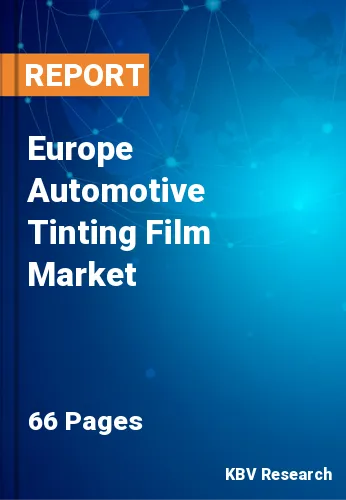The Europe Automotive Tinting Film Market would witness market growth of 4.5% CAGR during the forecast period (2019-2025). The automotive tinting films were well accepted among the consumers across regions owing to a number of benefits that the product offer such as protection from UV rays, prolonged exposure to direct sunlight, protecting the vehicle interiors and also the privacy of consumers. However, a number of countries either have put a ban or have restricted the usage of these tinted films in vehicle.
The EU has approved a decisive law on the subject, individual EU member states have however made their own laws based on specific discretion for the same. In UK, 100% black tint on rear window and rear-side windows is approved. In case of Germany the vehicle owner has to have a manufacturing approval number on each window, and has to carry a draft stating who did the tint along with the same approval number on it. Tinted glass seems to be acceptable at any transparency in Egypt and Cyprus however, tinted film is completely banned.
Based on Vehicle Type, the market is segmented into Heavy Commercial Vehicles (HCVs), Light Commercial Vehicles (LCVs) and Passenger Cars. Based on Application, the market is segmented into Windows and Windshield. Based on countries, the market is segmented into Germany, UK, France, Russia, Spain, Italy, and Rest of Europe.
The market research report covers the analysis of key stake holders of the market. Key companies profiled in the report include 3M Company, Eastman Chemical Company, Saint-Gobain Group (Saint-Gobain Solar Gard, LLC), Tintfit Windows Films Ltd., Avery Dennison Corporation (Hanita Coatings RCA Ltd.), Johnson Window Films, Inc. (Johnson Laminating & Coatings, Inc.), Global Window Films, Lintec Corporation (Madico, Inc.), Technical Window Films, and Armolan Window Films.
Market Segmentation:
By Vehicle Type
By Application
By Country
Companies Profiled
Our team of dedicated experts can provide you with attractive expansion opportunities for your business.

